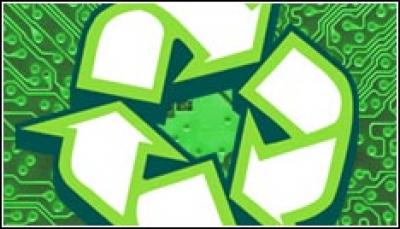Apple has set itself the goal of “one day” making its devices using 100 percent recycled materials, rather than mining for metals and toxic rare materials such as tungsten and cobalt.
The company has been criticised in the past for sourcing materials from mines that exploit child labour, but is now pledging to shake up its supply chain and look for alternative means of building its iPhones, iPads and Macbooks.
In its environmental report, Apple says: “We’re moving toward a closed-loop supply chain. One day we’d like to be able to build new products with just recycled materials, including your old products.”
Recycled iPhones
Speaking to Vice, Lisa Jackson, vice president of environment, policy and social initiatives At Apple said: “We’re actually doing something we rarely do, which is announce a goal before we’ve completely figured out how to do it.
“We’re a little nervous but I think it’s really important, because as a sector we believe it’s where technology should be going. We are committing as a company to not necessarily having to source from the earth for everything that we need.”
However, Apple stopped short of saying it would not give customers the “right to repair” their devices through third-parties and increase their shelf life, despite the fact that doing so would complement it’s sustainability efforts.
“Trying to pretend that we can make it easy to repair the product, and that you still get the product that you think you’re buying – that you want – isn’t the answer,” Jackson said, adding that iPhones are simply too “complex” to be repaired by anyone other than an authorised Apple party.
Earlier this year, Apple was among a group of tech companies praised by environmental campaigner Greenpeace for its green IT efforts, receiving an ‘A’ grade along with Google and Facebook.
And its an area which is becoming more prominent within IT, highlighted by the creation of a $1 billion (£800bn) investment fund from several high-profile tech executives to go towards clean energy technology.
Quiz: Test your knowledge of renewable energy in IT




